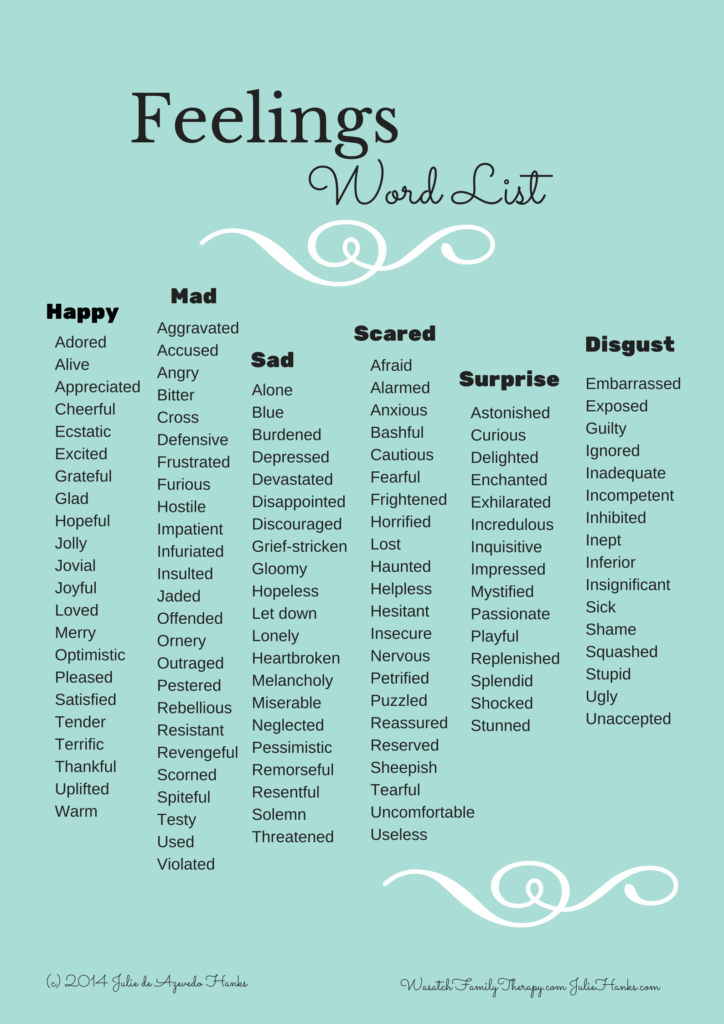It was my first year of marriage, I would get home from work and my wife would ask me about my day. The conversation would go something like this:
Wife: “How was work?”
Me: “It was fine.”
Wife: “Did anything exciting happen today?”
Me: “No, not really.”
Wife: “Well…what did happen during the day?
Me: “Not much. Everything was just OK. What do you want to do tonight?”
You get the picture. She might as well be speaking to a brick wall. It sounds obvious now, but this way of relating to each other did not foster the close relationship we both desired. It left my wife feeling rejected, alone, and to several late night discussions.
One thing my wife and I did early on in our dating relationship was meet with a counselor. We knew we would need help along the way and we found value in having a third party point out our blind spots as a couple. Our counselor strongly encouraged me to memorize an emotional words list and to begin using the words in my everyday conversations. I did and some pretty incredible things started to happen:
- By learning a variety of emotional words, I was able to identify what I was feeling and communicate clearly. I always felt the emotions; I just did not know the words. I became more comfortable and confident as I practiced.
- I was able to deal with problems in a more productive way. I began to stop stuffing my emotions and learned that by expressing them appropriately, I was better able to confront whatever situation was before me. I noticed I carried around less baggage because I was dealing with my emotions as they arose instead of denying them.
- Sharing my emotions increased the depth and quality of my conversations. I also became more empathetic and a better listener. I was able to connect with my wife and validate her instead of trying to be “Mr. Fix It.”
Ten years have passed since I memorized the emotional words list. The counselors’ challenge motivated and provided me with something I could practically do to connect with my wife. If you are struggling to connect with others and have difficulty expressing your emotions, then memorizing the words on this list is a great first step.

Tyler Stacy, M.A., LPC








